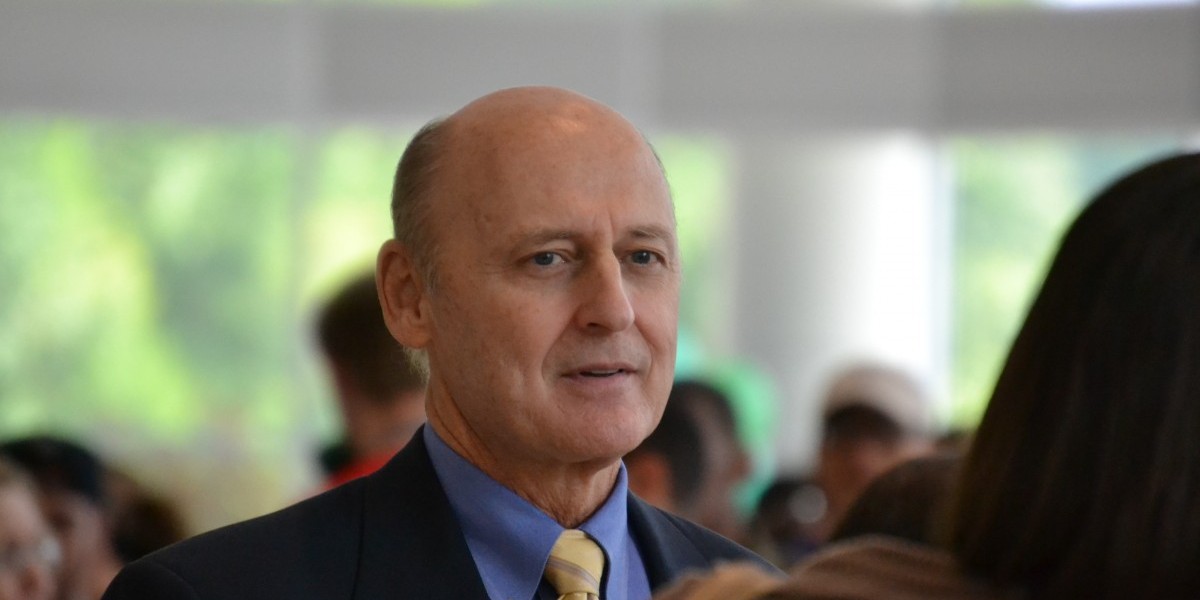As Nov. 22 marks the 50th anniversary of the day President John F. Kennedy was assassinated in Dallas, Missouri Baptist University President R. Alton Lacey opens a series of reflections from MBU faculty and staff members who remember that fateful day.

Photo Credit: Joseph Hartmann
By R. Alton Lacey, Ph.D.
President, Missouri Baptist University
I remember.
I was a freshman at West Monroe High School in West Monroe, La. I was on my lunch break and a fellow student ran up to a group of us and said the president had been shot. I have always remembered that she was laughing and I really never knew why. Perhaps she did not grasp the gravity of the moment, maybe she was in shock, maybe she thought it was a joke.
I had a study hall immediately after lunch and I went to the library. The radio was on and we listened for news.
At that time we did not know the president was dead.
Last period was band and the announcement that the president was dead came on the speakers. The band director angrily threw his baton across the room. I had rarely seen an adult, much less a teacher, express emotion that way.
It was a Friday and in Louisiana students got the week of Thanksgiving off so that teachers could attend a statewide teacher’s conference. I had planned to take my first trip away from home on my own.
I was taking the bus to my aunt and uncle’s house in rural central Louisiana. They had a small house with a milk cow, chickens, a garden and no heat other than a fireplace. They hunted and fished for much of their food and I had brought my shotgun so I could hunt with them each day.
They drove a school bus for income and swapped off the morning and afternoon routes. They never hunted together and were very competitive, logging their kill on a calendar in the kitchen each day.
My aunt and uncle would kill about 200 squirrels each in a season, hunting with a little squirrel dog. We had fried squirrel for just about every meal.
In the evenings we would sit around a small lamp at the kitchen table and play games, sometimes with a neighbor girl about my age. They had a small black-and-white TV and we watched much of the news coverage of the Kennedy assassination. I particularly remember watching the funeral.
My aunt and uncle were very conservative people and President Kennedy was not popular in most of Louisiana. However, I remember they were very respectful and shocked that he had been killed. I did not appreciate the uncertainty of the moment but in retrospect they were most likely somewhat frightened of what might come next.
Impact.
I was very curious about the events surrounding Kennedy’s death and read everything I could about the assassination. Conspiracy theories were abundant and the shooting of Lee Harvey Oswald that followed the day after Kennedy’s assassination fueled those theories.
It is hard to explain how tumultuous and violent things were in the ’60s. The fact that I remember vividly the day that Kennedy was shot, including the name of the student who first told us about it and details of the next few hours, says something about the impact it had on me. It was an event that defined my generation as Pearl Harbor did my parents’.
Though Kennedy was not popular as a president for a lot of reasons, almost everyone was fascinated with his family. He was handsome, his wife was beautiful, his kids were cute, they were rich, he was smart, a war hero, and his family projected a youthful vigor not heretofore seen in the White House during our lifetime.
He radiated hope for the country. The White House became “Camelot.”
Suddenly that was gone and even at a young age I sensed that something was lost.
Despite that, life went on and routines were resumed. In the days before social media, stories could be controlled. Perhaps, the slow circulation of news was a good thing — allowing the news to be absorbed slowly.
We’ll never be the same.
There was a noticeable loss of innocence. The years that followed were tumultuous, and may have been no different if Kennedy had lived.
Viet Nam was already on the horizon, civil rights struggles were moving into a more active and hostile phase, and the Cold War would go on for another 30 years.
The tone of politics began to shift.
I am not one who would canonize Kennedy, mainly because he just did not live long enough to have the impact of other presidents. Many of the events that would follow were already in motion.
However, his death certainly brought into focus at that moment that politics and culture were going to change dramatically, and they did.